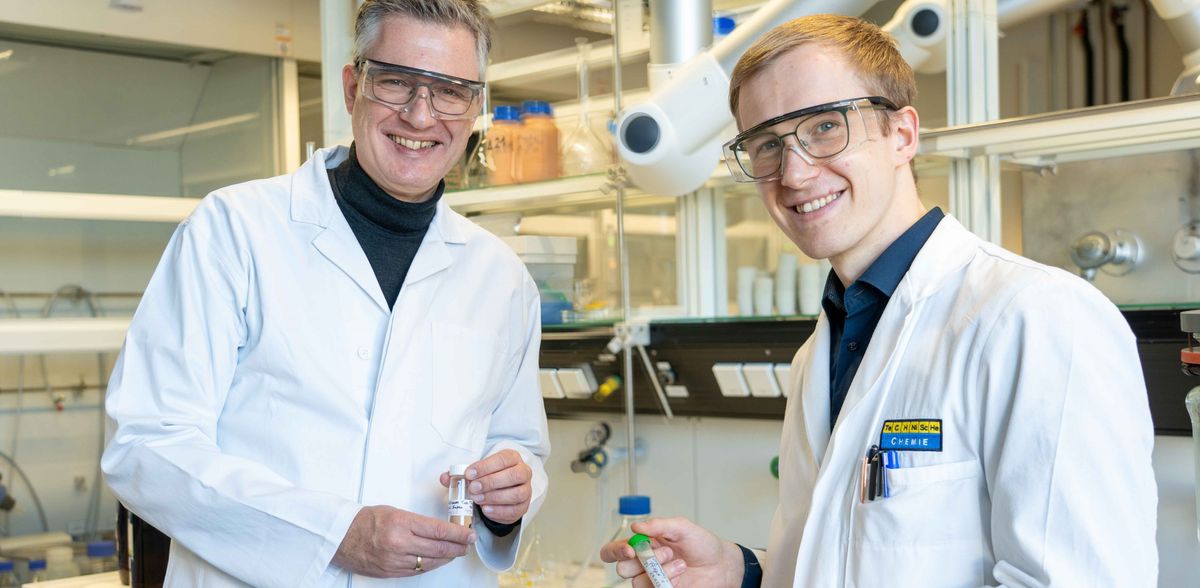Using clay to combat eternal toxins
TU Freiberg clarifies basis for innovative PFAS filter made of clay
PFAS filters available for industrial waste are usually made of activated carbon (PFAS = perfluorinated and polyfluorinated alkyl compounds). As this is comparatively expensive, researchers are looking for alternative filter materials for the so-called "eternal toxins", whose hazardous residues only degrade very slowly in the environment. A team from the TU Bergakademie Freiberg is now proposing a clay made of bentonite modified with organic substances as a possible PFAS filter. The results appear in the current issue of the journal "Chemie Ingenieur Technik".
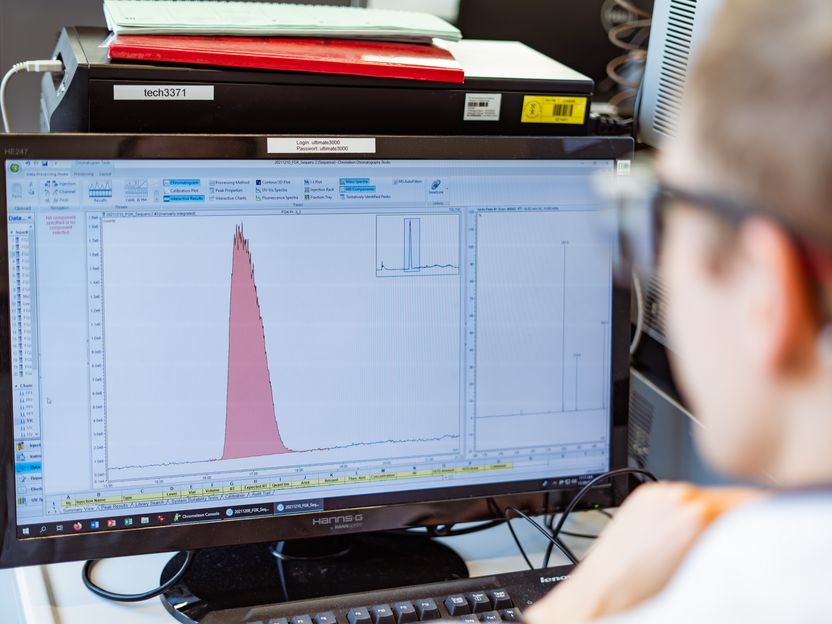
In laboratory tests, the team led by chemistry professor Martin Bertau achieved a filter performance of up to 95 percent of perfluoroheptanoic acid (PFHpA) with the innovative material.
TU Bergakademie Freiberg / Andreas Hiekel
In laboratory tests, the team led by chemistry professor Martin Bertau achieved a filter performance of up to 95 per cent of perfluoroheptanoic acid (PFHpA) with the innovative material. PFHpA is a prominent representative of PFAS and is frequently detected in environmental analyses. "The so-called organoclays are known for their good filter effect. We have now investigated the modification of the material with the help of organic additives that are specialised in "capturing" the PFAS," explains Prof. Martin Bertau.
The chemists can insert organic additives between the split clay layers in the laboratory like in a stack of cards. "The organic components peek out of the clay components in such a way that the carbon atoms can interact with the PFAS," explains Paul Scapan, who is investigating the clay filters for his doctoral thesis. "These carbon atoms have the ability to grab the PFAS molecules and bind them." The organoclay with the bound PFAS can then be incinerated at a temperature of at least 1,200 degrees, completely destroying the pollutants.
Environmentally friendly and recyclable
Doctoral researcher Paul Scapan is now investigating which readily biodegradable molecules can best fulfil the gripper function for the various PFAS. If the additives are environmentally friendly, the ashed clay filter can be completely reused. "The material is suitable for further processing into geopolymers as an environmentally friendly cement alternative, for example," says Prof Martin Bertau.
What other advantages the organoclays could have
With the various additives, the filter effect of the innovative organoclays can be specifically tailored to numerous perfluorinated and polyfluorinated alkyl compounds. "Compared to filters made of activated carbon currently available on the market, the organoclays would be around a tenth of the cost in terms of PFAS elimination performance, according to our current state of knowledge," calculates Paul Scapan.
Background: Where PFAS are used
PFAS stands for per- and polyfluorinated alkyl substances. In industrially produced organic compounds, hydrogen atoms are replaced by fluorine atoms. This makes them extremely resistant. More than 10,000 solid, liquid and gaseous chemicals are PFAS, some of which are carcinogenic and harmful to health. They are used, for example, in impregnation sprays, functional clothing, medical products and non-stick coatings.
Hazardous PFAS residues are detected in the environment all over the world and accumulate in water, soil, plants and animals. PFAS can even be found in the polar regions - and in the blood of children. Even with a planned future ban on PFAS in the EU, these substances have already been released into the environment and only degrade very slowly. A ban on all PFAS is now being discussed and is currently being drafted by the European Chemicals Agency (ECHA).
Original publication
Most read news
Original publication
Paul Scapan, Jannis Hassler, Christoph Piribauer, Sandra Pavón, Ines Aubel, Jan Werner, Martin Bertau; "Organo‐Pillared‐Clay: Synthesis, Characterization, and Applications for Treatment of Perfluoroalkyl Substances"; Chemie Ingenieur Technik, Volume 95, 2023-10-24
Topics
Organizations
Other news from the department science
These products might interest you
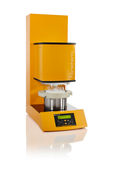
FIBRETHERM by C. Gerhardt
Automatic Fibre Extraction for Feed Analysis
FIBRETHERM from C. Gerhardt: Efficient – Precise – Method-Compliant

Glass and quartz microfiber filter by Cytiva
Request a glass microfiber sample pack to meet your battery development needs
Delivering efficient and consistent results
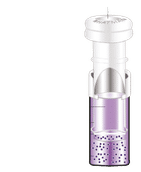
Mini-UniPrep™ by Cytiva
Improved HPLC Sample Preparation
Save 66 % sample preparation time and reduce costs by 40 %
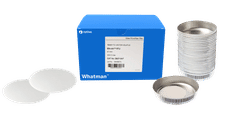
GF/C and 934-AH RTU (Environmental) by Cytiva
Meet wastewater regulations with the right filter
Streamline lab operations and ensure high-quality results
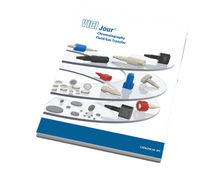
VICI Jour Katalog 15INT by VICI
The VICI Jour Catalog - Accessories for (U)HPLC and Liquid Handling
Capillaries, Tubing, Fittings, Filters, Safety-Products, Tools and much more
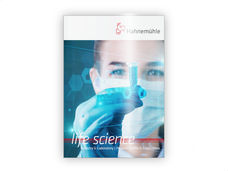
Hahnemühle LifeScience Catalogue Industry & Laboratory by Hahnemühle
Wide variety of Filter Papers for all Laboratory and Industrial Applications
Filtration Solutions in the Life Sciences, Chemical and Pharmaceutical Sectors
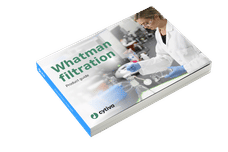
Whatman filtration product guide by Cytiva
New filtration catalog - a wealth of information on 286 pages
Discover the perfect filters for your laboratory application

Get the chemical industry in your inbox
By submitting this form you agree that LUMITOS AG will send you the newsletter(s) selected above by email. Your data will not be passed on to third parties. Your data will be stored and processed in accordance with our data protection regulations. LUMITOS may contact you by email for the purpose of advertising or market and opinion surveys. You can revoke your consent at any time without giving reasons to LUMITOS AG, Ernst-Augustin-Str. 2, 12489 Berlin, Germany or by e-mail at revoke@lumitos.com with effect for the future. In addition, each email contains a link to unsubscribe from the corresponding newsletter.
Most read news
More news from our other portals
Last viewed contents
Schaefer-Bergmann_diffraction
Cossee-Arlman_mechanism
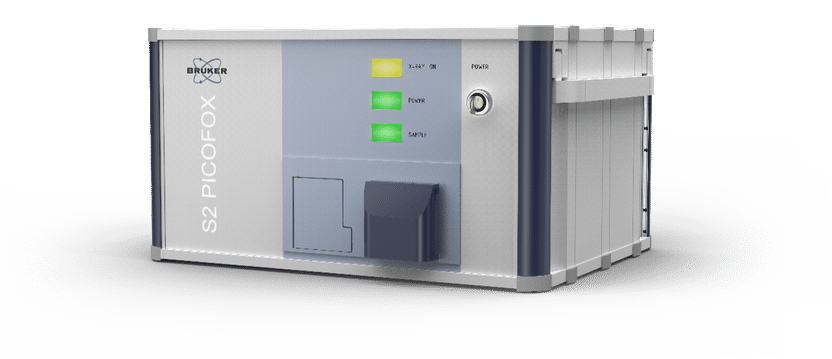
S2 PICOFOX | Total reflection x-ray fluorescence spectrometers | Bruker
Heptad_repeat

